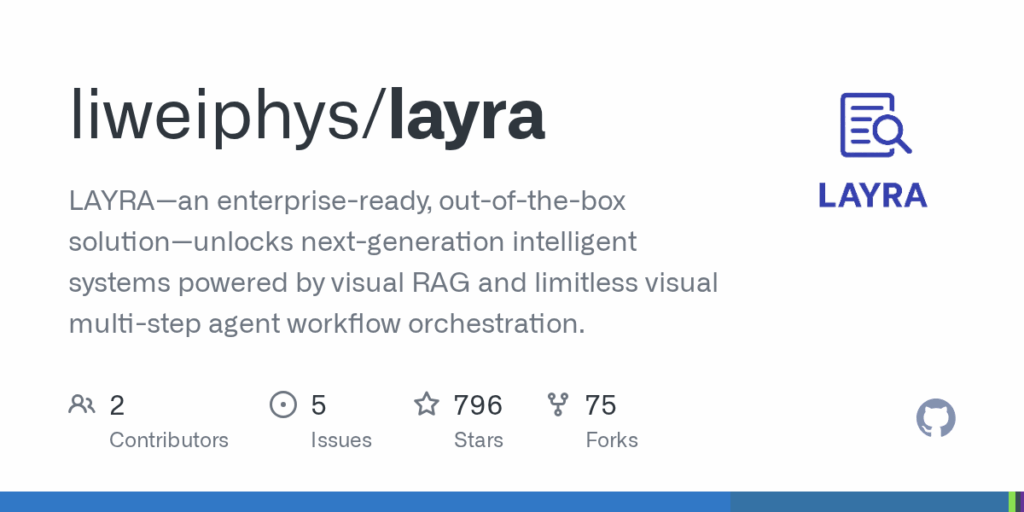layra
Basic Information
LAYRA is an open source, enterprise-grade AI agent engine designed to build visual-native agents and orchestrate complex workflows that see, understand, and act on documents and multimodal content. The repository provides a complete stack including a Next.js frontend, a FastAPI backend, and containerized services for Redis, MySQL, MongoDB, Kafka, MinIO and Milvus. It focuses on visual-first Retrieval-Augmented Generation by embedding full pages with ColQwen or Jina embeddings to preserve layout, tables, figures and other visual elements. The project enables developers and operators to deploy a scalable, debuggable platform via Docker Compose with options for local GPU model deployment or cloud embedding APIs. It includes tooling for document upload and indexing, event-driven asynchronous workflow execution, persistent chat memory, and human-in-the-loop controls to support production-grade agent applications.








